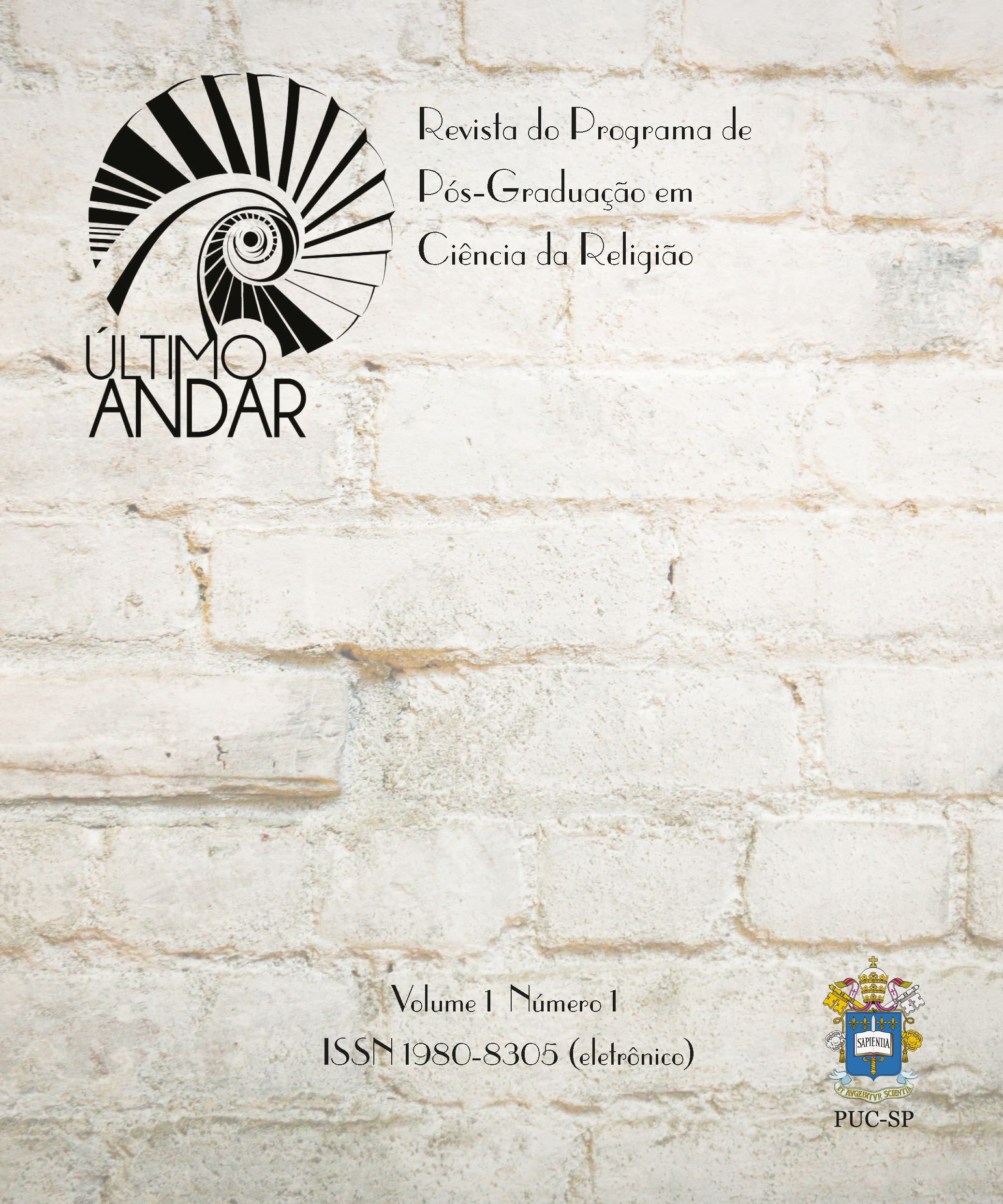O discurso religioso de Che
Keywords:
Sociology of religion, religious and political, Theology of Liberation, Che Guevara, Latin AmericaAbstract
In 1967 Ernesto Che Guevara died in Bolivia. Three years later, a small group of young university students organized a new guerrilla movement based on Che’s experience. The characteristic of this movement is the religious factor, that is, the participation of many Christians who were motivated by their religious beliefs in the fighting. They thought that they were building the kingdom of God on Earth. This article analyses the characteristics of Che’s discourse to understand the process of “elective affinity” between Guevarism and Latin American Christian movement in the 70’s. I basically used Michael Löwy’s concepts of Liberation Christianity to answer why young Christians were attracted to Che’s discourse, up to the point of giving up their lives for that social project.
References
BOURDIEU, Pierre. Une interprétation de Ia théorie de Ia religion selon Max Weber. Archives Européens de Sociologie, v. 12, n. 1, p. 3-21, 1971.
BOURDIEU, Pierre. “Genèse et structure du champ religieux”. Revue Française de Sociologie, v. XII, p. 295-334, 1971.
FOLLMANN, Yvo. Religion, politique et identité. Christianisme de la libération au sein du Parti des travailleurs au Brésil (1979-1989). Recherche sociologique sur l’identité des catholiques engagés dans ce parti et sa signification au niveau du parti. Dissertation doctorale de sociologie, Université Catholique de Louvain, 1993.
GUEVARA, Ernesto Che. Escritos y discursos. La Habana; Ed. Políticas, 1977a.
GUEVARA, Ernesto Che. Escritos y discursos. La Habana: Ed. Políticas, 1977b.
GUEVARA, Ernesto Che. Escritos y discursos. La Habana: Ed. Políticas, 1977f.
GUEVARA, Ernesto Che. Escritos y discursos. La Habana: Ed. Políticas, 1977h.
HERVIEU-LEGER, Daniàle. La religion pour mémoire. Paris: Cerf, 1993.
HERVIEU-LEGER, Daniàle. «Croire en modernité: Au-delà de la problématique des champs religieux et politique». In: MICHEL, Patrick (ed.). Religion et démocratie. Nouveaux enjeux, nouvelles approches. Paris, Albin Michel, 1997. p. 361-381.
HERNAUX e GANTY. Sociologie des Groupes Chrétiens Contemporains, systèmes symboliques, insertion sociale et mobilisation affective. Louvain: Presses Universitaires de Louvain, 1977.
HIERNAUX, Jean Pierre ; REMY, Jean. «Sociopolitical» and «carismatic» symbolics: cultural change and transaction of meaning. Social Compass, v. 25, n. 1 p. 145-163, 1978.
HIERNAUX, Jean Pierre. L’Institution Culturelle II, Méthode de description structurale. Louvain: Presses Universitaires de Louvain, 1977.
HIERNAUX, Jean Pierre. De l’objet religieux aux symboliques sociales — une préfiguration sous forme de viatique. Document de travail, oct. 1992.
LÖWY, Michael. El pensamiento del Che Guevara. México: Siglo, 1973.
LÖWY, Michael. Rédemption et utopie, le judaïsme libertaire en Europe centrale. Paris: PUE 1988.
LÖWY, Michael. Marxismo e Teologia da Libertação. São Paulo: Ed. Cortez, 1991.
LÖWY, Michael. «Religion, politique et violence: le cas de la Théologie de la Libération». Lignes, n. 25, 1995.
LÖWY, Michael. The war of gods, religion, and politics in Latin America. London: Verso, 1996.
PAZ ZAMORA, Néstor. carta de Néstor Paz. In: ASSMANN, Hugo (ed.). Teoponte, una experiencia guerrillera. Oruro: Ed. CEDI, 1971. p. 163-167.
PAZ ZAMORA, Néstor. Carta a sus padres. In: ASSMANN, Hugo (ed.). Teoponte, una experiencia guerrillera. Oruro: Ed. CEDI, 1971. p. 170.
PAZ ZAMORA, Néstor. Diario Personal, 22 de junio de 1964 a 8 de marzo de 1965, Santiago de Chile, policopiados. Texto inédito recopilado por Jorge Cortés Rodríguez en La Paz, 1991.
PAZ ZAMORA, Néstor. Cartas a Cecilia, Diario de Campaña. Santa Cruz: Ed. El Pais, 1995.
Downloads
Published
How to Cite
Issue
Section
License
Copyright (c) 2023 Último Andar

This work is licensed under a Creative Commons Attribution-NonCommercial 4.0 International License.
The Authors maintain the copyright and grant the journal the right to first publication, with the work simultaneously licensed under the Creative Commons Attribution License that allows the sharing of the work with acknowledgment of authorship and initial publication in this Journal.
Authors are authorized to assume additional contracts separately, for non-exclusive distribution of the version of the work published in this journal (eg, publishing in institutional repository or as a book chapter), with acknowledgment of authorship and initial publication in this journal.
Authors are allowed and encouraged to publish and distribute their work online (eg in institutional repositories or on their personal page) at any point before or during the editorial process, as this can generate productive changes, as well as increase impact and citation of the published work.


